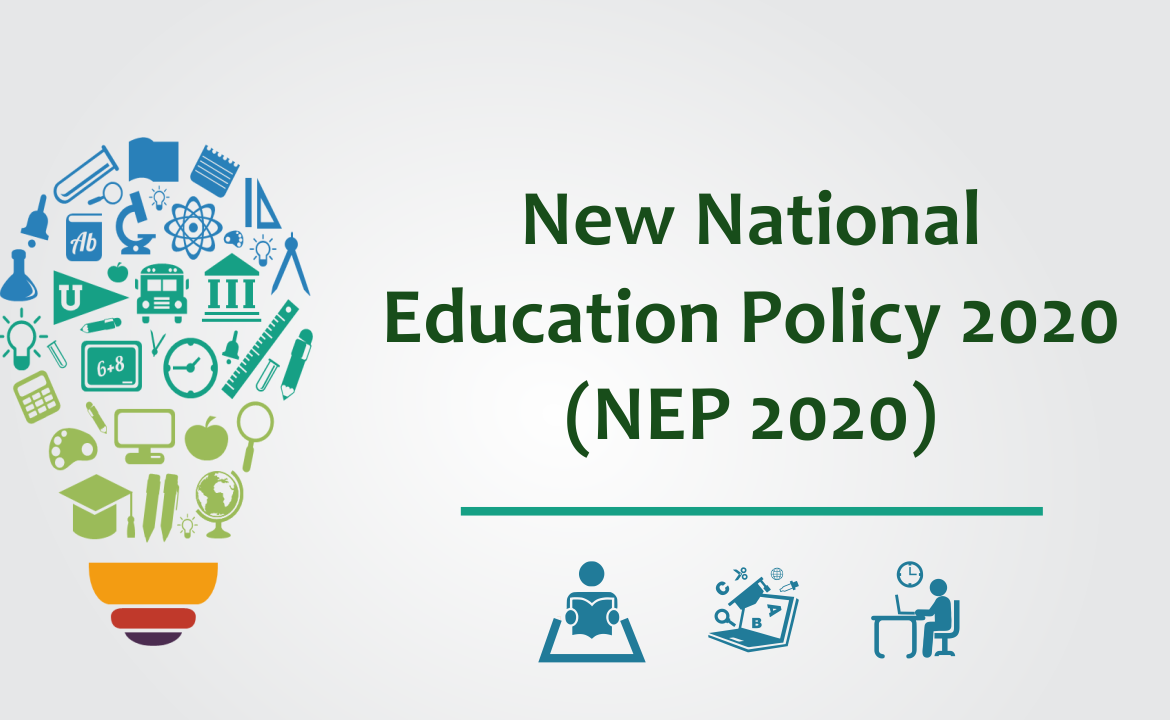In this article, we are discussing our National Education Policy 2020. This policy changes our entire education system for students. The first national education policy came in 1968 & 2nd one came in 1986 & but was amended in 1992.
Detail of NEP 2020:
The National Education Policy (NEP) 2020 is the first education policy of the 21st century that has replaced 34 years old education policy. Built on the fundamental pillars of access, equity, affordability, and responsibility, the policy aims at sustainable development and transformation of India into a vibrant knowledge society and global knowledge superpower that makes both school and college education more holistic, and definitively multidisciplinary.
The new curriculum structure will change from the current 10+2 format to a 5+3+3+4 curricular structure. Further, there will not be any watertight disciplines, students will be free to choose any subject they want and the focus will be on developing critical thinking, creativity, collaboration, curiosity, and communication skills in the students.
The details of this policy are as follows:
Name of the article | National Education Policy 2020 |
Launched by | Government of India |
Launched on | 2020 |
Beneficiaries | The Student of India |
Objective | To universalize education & make India a global knowledge superpower |
Benefits | The student will be able to choose a language according to their preference |
Previously Followed Pattern | 10 + 2 |
Changed Pattern | 5 + 3 + 3 + 4 |
The new education policy is described (5+3+3+4) in the table below:
Age | Stage | School | Changes in Student |
| 3 to 8 | Foundational Stage | PreSchool to 2nd Class | – |
| 08 to 11 | Preparatory Stage | 3rd to 5th Class | Regional Language Compulsory |
| 11 to 14 | Middle Stage | 6th to 8th Class | Liking a subject is optional & Report card depends on the academic response. |
14 to 18 | Secondary Stage | 9th to 12th Class | Semester pattern only one board all over India. |
Major Outcomes of NEP:
Some of the major outcomes of this policy are as follows:
- Mother tongue or regional language will be used as a medium of instruction for teaching the students.
- Counseling will be given to the parents for early childhood care.
- Qualitative education will be provided to the students.
- With the adoption of modern technology, education will reach a larger audience.
- After studying analytical-based subjects, students will be able to think critically and logically after participating in the discussion session organized by the school authorities.
- Children with special needs will be given the same facilities as the normal student’s access.
- Promotion will be based on the merit-based test.
- Qualitative opportunities in the field of higher education will be provided to the individuals.
- After the setup of the Digital Library, students will be able to access a digital form of books online.
- With the set up of virtual labs, students of science & technology will get experimental knowledge in their phase of graduate studies
The committee’s Draft National Education Policy Dr. K. Kasturirangan submitted its report on May 31, 2019, and the bill has been approved. This new education scheme is trying to bring more than 2 crore students into the mainstream and with the help of this, they aim to achieve 100% GER (Gross enrolment ratio) from preschool to secondary by the end of 2030.
- They also renamed MHRD as Ministry of Education
- The total academic format will be 12 years. (Ages 6 to 18)
- The main emphasis will be on mother tongues and regional languages preferred by different states.
- A structure like 10+2 will be replaced by a 5+3+3+4 model which includes the foundational stage, preparatory stage, middle stage, and secondary stage.
- NCERT will develop a national curriculum and educational framework for childhood care and education for children up to 8 years.
- After further completing 4 years you will graduate and can go to the National Research Foundation.
- Every child will come out of school with at least one skill
- A National Educational Technology Forum will be created that will use technology to teach while you are learning.
- A New National Centre for Performance Assessment Review and Analysis of Knowledge for Holistic Development (PARAKH) will be established as the standard-setting body.
- By 2023, teachers should be ready to improve assessment.
- The minimum degree qualification for teaching by 2030 will be a 4-year integrated BEd degree. In 2021, a new comprehensive national curriculum framework for teacher education will be developed by the NCTF in consultation with the NCFRT.
The MyClassAdmin School, Coaching Class Management Software & App is highly beneficial for educators in terms of greater student engagement and escalating institutional growth. Hence, stop searching here and there, you can get multiple solutions from MyClassAdmin School, Coaching Class Management Software & App. Register and Schedule a FREE Demo Today!
To know more…
Visit Our Site:- www.myclassadmin.com
Contact Us:- info@myclassadmin.com
Call Us On:- +91-9503273330
Click Button – Schedule a Free Demo

Ahaa, its fastidious conversation concerning this article at
this place at this web site, I have read all that, so at this
time me also commenting here.